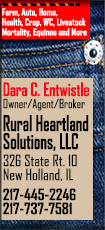|
 In a six-page decision rendered hours after a hearing on the matter,
Judge Lawrence Knipel denied the parents' petition seeking to lift
the vaccination order, imposed last week to stem the worst measles
outbreak to hit the city since 1991. In a six-page decision rendered hours after a hearing on the matter,
Judge Lawrence Knipel denied the parents' petition seeking to lift
the vaccination order, imposed last week to stem the worst measles
outbreak to hit the city since 1991.
The judge sided with municipal health officials who defended the
order as a rare but necessary step to contain a surge in the highly
contagious disease that has infected at least 329 people so far,
most of them children from Orthodox Jewish communities in the
borough of Brooklyn.
Another 222 cases have been diagnosed elsewhere in New York state,
mostly in a predominantly ultra-Orthodox Jewish neighborhood of
Rockland County, northwest of Manhattan.
The New York outbreaks are part of a larger resurgence of measles
across the country, with at least 555 cases confirmed in 20 states,
according to the U.S. Centers for Disease Control and Prevention.

Health experts say the virus, which can cause severe complications
and even death, has spread mostly among school-age children whose
parents declined to get them vaccinated. Most profess philosophical
or religious reasons or cite concerns - debunked by medical science
- that the three-way measles-mumps-rubella (MMR) vaccine may cause
autism.
The judge rejected the parents' contention that the vaccination
order was excessive or coercive, noting that it does not call for
forcibly administering the vaccine to those who refuse it.
Under the public health emergency declared last Tuesday by Mayor
Bill de Blasio, residents of certain affected Brooklyn neighborhoods
who refuse orders to obtain an MMR vaccine face fines unless they
can otherwise demonstrate immunity to measles or provide a valid
medical exemption.
The court challenge was filed in Brooklyn's Supreme Court on behalf
of five mothers and their children in the affected neighborhoods.
Their identities were kept confidential to protect the children's
privacy, their lawyers said.
[to top of second column] |

They told Knipel in court on Thursday the city had overstepped its
authority and that quarantining the infected would be a preferable
approach.
Robert Krakow, an attorney for the parents, estimated that just
0.0006 percent of the population of Brooklyn and Queens had measles.
"That's not an epidemic," he said. "It's not Ebola. It's not
smallpox."
The health department's lawyers argued that quarantining was
ineffective because people carrying the virus can be contagious
before symptoms appear.
The judge cited 39 cases diagnosed in Michigan that have been traced
to an individual traveling from the Williamsburg community at the
epicenter of Brooklyn's outbreak. The surge in measles there
originated with an unvaccinated child who became infected on a visit
to Israel, where the highly contagious virus is also running
rampant.
Krakow later told Reuters he was reviewing the judge's dismissal of
the case - brought under special proceedings for the appeal of
administrative actions - to determine how his clients might respond.
The number of measles cases worldwide nearly quadrupled in the first
quarter of 2019 to 112,163 compared with the same period last year,
the World Health Organization said this week.
(Reporting by Jonathan Allen in New York; Additional reporting by
Steve Gorman in Los Angeles; Editing by Bill Berkrot and G Crosse)
[© 2019 Thomson Reuters. All rights
reserved.] Copyright 2019 Reuters. All rights reserved. This material may not be published,
broadcast, rewritten or redistributed.
Thompson Reuters is solely responsible for this content.

 |